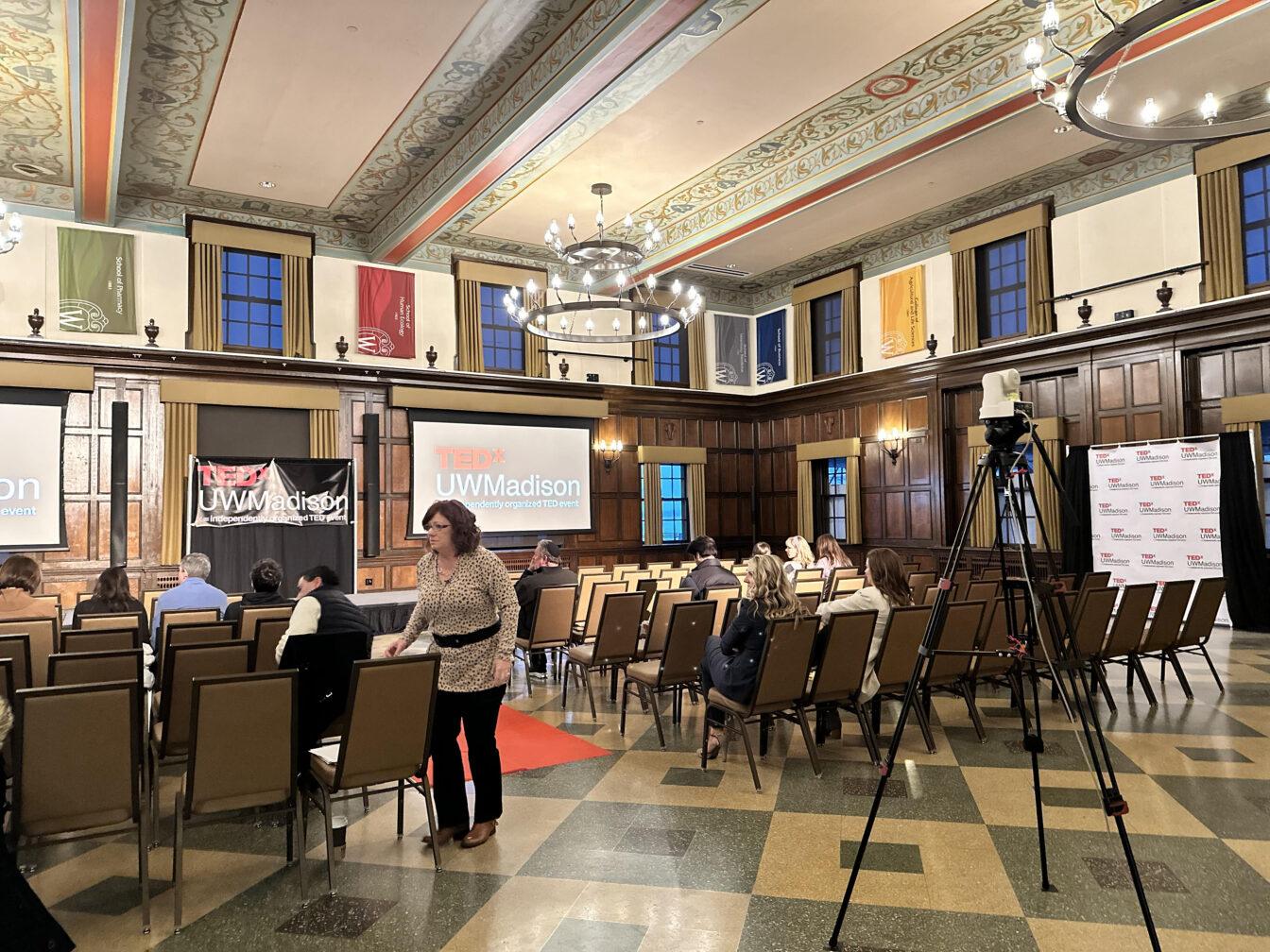TEDxUWMadison and the Senior Class Office held a TEDx event entitled “Defining the New Normal” Feb. 27 at Tripp Common in Memorial Union. “Defining the New Normal” featured five speakers — Diversity, Equity and Inclusion manager for the Milwaukee Bucks Jakeim Jackson-Bell, author and public speaking coach Deb DiSandro, educator and author Liza Wiemer, Vice President of Implementation at Epic Systems Tina Perkins and Senior Manager of Talent Acquisition and World Wide Operations at Amazon Rachel Idso.
According to their website, TEDx events are coordinated independently from TED and are events intended to bring people together locally for a TED-like experience.
Jackson-Bell spoke about a moment which changed his life early on in his career. Six hours into Jackson-Bell’s first shift at the MBA program at Texas Southern University, the director of human resources informed him he was fired because the CEO did not “like his vibe.”
Eight years later, he started his job with the Bucks. In addition to being recognized as one of Wisconsin’s Most Influential Black Leaders by Madison365 in 2022 and working closely with Martin Luther King III to register voters, Jackson-Bell has made significant contributions to further diversity, equity and inclusion.
In his talk, Jackson-Bell said creating a sense of belonging in the workplace is only possible through creating a culture of inclusion in the workplace. Jackson-Bell emphasized the need to embrace diversity and people of other walks of life.
“Change is difficult — change is challenging as hell,” Jackson-Bell said.
He said it is necessary to see a diverse leadership team, and the data reflects that as well. Eighty percent of job seekers from ages 18 to 34 say a company’s investment in DEI and belonging is important. Also, DEI and belonging positions rose by 123% in 2020 alone, which shows companies want to make their workforce more diverse. Jackson-Bell said the death of George Floyd had a large impact on DEI and belonging positions opening up.
Jackson-Bell also spoke about corporate social responsibility — or CSR — and how a company giveing back to the community positively impacts the environment. These are acts of greater good, not just greater profits, he said.
“It [CSR] is critical because it’s not just about public respect, but it’s tied into internal employee satisfaction and happiness,” Jackson-Bell said.
In addition to Jackson-Bell, Idso discussed corporate activism.
According to Idso, much has changed in the corporate landscape over the past three years. Amazon wants to hear about Black Lives Matter, LGBTQ rights and gun violence, so their employees and employers’ values line up, Idso said.
“Employees, customers and investors are stakeholders in these companies, and we have a stake in how we spend our money, and where we make money with where our ethic lies,” Idso said.
According to recent research, one in four Gen Z and millennials has rejected a job offer if an organization does not match their ethical values. Also, people are having conversations about boycotting products from corporations based on their beliefs, Idso said.
When asked about reluctance to work at companies due to ethics, Idso said people want to work at Amazon because of their stance on social issues.
Idso also said it is difficult for all of Amazon to agree on an issue due to the one million employees they have. She said there is going to be a difference of thought based on the sheer size of Amazon.
Amazon CEO hosts quarterly open forums where employees can share their ideas with upper management — both by writing in or directly asking questions and concerns, according to Idso.


